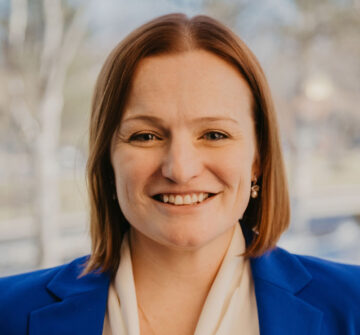Program Eligibility
Project teams are composed of not-for-profit applicants collaborating with at least one for-profit Massachusetts life science company to solve some of the most pressing life science questions using high throughput approaches to generate and analyze large datasets using Artificial Intelligence (AI) and Machine Learning (ML).
- Up to $5 million capital dollars are available to support equipment and other capital expenses at not-for-profit partners; each award is anticipated to be about $750,000.
- For-profit partner provides salary support for at least one new postdoctoral data scientist to be jointly appointed at the not-for-profit and industry partner, as well as other financial and in-kind contributions to leverage MLSC capital dollars.
- Projects should be completed within 2-3 years post grant award.
- When applicable, teams are required to be inclusive of gender biology and other health equity factors, particularly as they relate to underrepresented and underserved populations. In addition to including racially/gender/age diverse subjects, the MLSC is interested in studies focusing on other social determinants of health such as social capital, education, transportation, employment, food access, health behaviors, socioeconomic status, environmental exposure, access to health services, housing, public safety, and geography, in their approach to pre-clinical/clinical development. Results should highlight any differences observed between groups.
- There is no limitation on the number of proposals that may be submitted by each non-profit institution (Applicant). There is no limit on applications from Applicants, but Project Teams are allowed to submit only one application per round.
- A yearly event will be organized whereby the data science fellows can communicate about their projects and network.
Applicants must be a Massachusetts legally organized “not-for-profit” entity such as an academic/research institution, hospital engaged in research, business incubator or accelerator, or other not-for-profit entity that would be eligible for capital funding from the Commonwealth of Massachusetts. Institutions that are exclusively health care providers and/or requests for the purchase of equipment associated with standard healthcare delivery would not be eligible for capital funding.
Eligible applicants must meet the following criteria:
- Applicants must be non-profit institutions, including research institutions and academic medical centers.
- Each application must be submitted by a Project Team, consisting of a principal investigator(s) (PI) at Applicant and one (or more) Company(s).
- The PI must have a full-time or part-time faculty position at a college, university, or non-profit institute in Massachusetts. The lead Company must have a presence and be registered to do business in the Commonwealth of Massachusetts. The Company will typically be a for-profit entity, but it may include not-for-profits capable of technology commercialization/adoption, such as health insurance companies. Not-for-profits that are primarily funding organizations (disease foundations, other state or federal funding sources, etc.) will not fulfill this requirement.
- The requested funding must support the performance of translational research that is intended to accelerate the understanding of critical healthcare issues or develop new treatment methods based on the analysis of large datasets. The requested funds can only be used to support capital costs (see Funding section below) at the MA non-profit institution.
- The Applicant and Company must commit to making all data (including metadata and necessary tools) generated under this award publicly available.
- Projects will be evaluated, in part, based on the level of support offered to the Applicant in a commitment letter(s) which delineates the amount of cash, in-kind, and/or other contributions (equipment donation, etc.) to be provided by the Company and any other sources (grantee institution, etc.). The more MLSC dollars leveraged by additional third-party support, the stronger the application.
- The Applicant will be required to provide documentation of a cash component from the company to support at least one new postdoctoral data scientist for the entire duration of the project following grant award. The salary must, at a minimum, follow the NIH pay scale plus fringe.
- Applicants must demonstrate how they will work collaboratively with the Company to execute the project.
- These funds are intended to catalyze new life science discoveries using modalities that generate large data sets (sequencing, proteomics, imaging, etc). Therefore, sponsored research agreements (or other similar arrangements) executed before Nov. 21, 2025 between the parties will not be considered as part of the letter of support for this program.
- The Applicant and Company must be in compliance with all other Center agreements, if any.
- Applicants must demonstrate interest in the dataset and equipment (if applicable) by other academic and industry scientists. Resources purchased under this award must be made available to other internal and external scientists.
Application and Review Process
For this solicitation, MLSC is particularly interested in supporting applicants whose research will lead to significant healthcare advances using data-driven approaches and who will recruit and train data scientists in the life science field. While the MLSC recognizes that different areas of translational research have different time horizons, successful proposals will explain a clear path, with executable milestones, that leads to new discoveries in partnership with the Company.
Applications must be submitted online. The MLSC staff will conduct an initial screening for application completeness and then submit applications to a panel of external experts for review. Applicants may receive invitations to present their proposals to address questions or provide clarification. The MLSC will provide final recommendations to its Board of Directors for approval.
Funding
- Allowable costs for MLSC funds include: equipment, research supplies and reagents (no minimum dollar amount), purchase of hardware and software, and datasets.
- This award is NOT able to fund: direct labor, overhead/indirect costs, renting space for storage of memory, monthly cloud storage fees, other monthly subscription fees, software development, legal expenses, travel, paying off debt, paying board members, paying for operating costs such as rent and utilities and activities funded by other funding sources.
- Following execution of the grant agreement, funds will be provided on a reimbursement basis to the Awardees.
- The maximum allowance for Supplies and Reagents for these awards is $200,000 OR 10 invoices per fiscal year.
- The maximum allowance for expenses paid to the for-profit industry partner for these awards is $200,000.
- Reviewers evaluating the budget will score based on how the assets will be made publicly available to the broad Massachusetts community. Equipment and publicly available datasets are scored higher than supplies and reagents for this reason.
- The number and amount of awards will be determined by the quality of the proposals.
- The Center reserves the right to adjust the requested amount of funding for each proposal.
Resources
Post-award Deliverables, Confidentiality, and General Conditions


